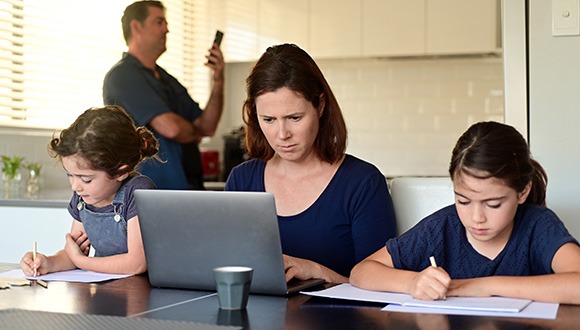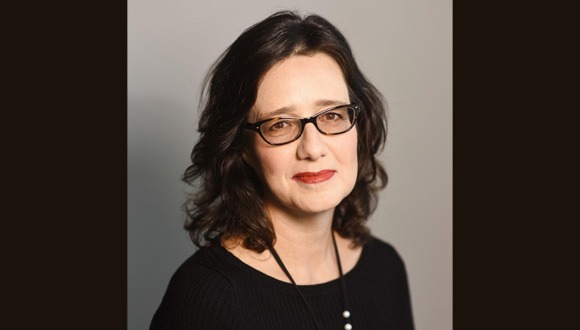Israeli Families and Law in 2022
How does Israel's legal system treat the increasingly diverse Israeli families of 2022?
How is the term “family” defined in Israeli law? How does Israel's family law compare with other countries’ legal systems? We turned to Prof. Daphna Hacker of TAU’s The Buchmann Faculty of Law and Head of NCJW Women's and Gender Studies Program at The Lester and Sally Entin Faculty of Humanities, who gave us an interesting glimpse into the special relationship between law, the legal system and the family.
Modern Families and Legal Complexity
Prof. Hacker starts by sharing with us that Israeli law does not, in fact, provide a definition of family, and this is not by accident: It is difficult, and perhaps not even desirable, to legally define what is and what is not considered a family, given that the current ambiguity allows the courts to be more flexible and to apply principles of family law more liberally.
We do, however, have special family courts and a definition of who is regarded a member of a family and should turn to the family court in case of dispute. That list is very long, and includes spouses of parents, grandparents and many more.
Prof. Hacker tells us that there are scenarios that are still relatively new, and which our courts need to address. Consider this example: A same sex couple, consisting of two women, decide to have a child with a man. One woman provides the ova and the other carries the pregnancy. What happens if the women later decide to separate? Who is the mother of the child? Does the mother who carried and gave birth to the child have the right to exclude her ex-spouse from the child’s life? And if the parental involvement of all three adults in the child's life should be ensured – how should the child move between the three homes?

Israel – A Special Case
Israel is a special case when it comes to family and law. With the exception of India, which also has a religious law that runs parallel with civil law, there is no other country that contains two systems that are so different but are applied to the same field.
“In Israel, we have religious courts with exclusive authority to decide who should be considered married and who is divorced,” explains Prof. Hacker. “They rule according to the ancient rules of Halacha (in the case of Jews), and Israelis do not, per today, have the freedom to choose when it comes to the most intimate aspects of our lives.”
In the field of research, this makes Israel an interesting case, and Prof. Hacker tells us that other countries are very interested in developments here: “They are now faced with similar issues: What happens when a Muslim couple live in a European country and the husband divorces his wife unilaterally, as is allowed according to Sharia? Or when the New York State Civil Court grants a divorce to a Jewish couple, but the husband refuses to give the woman a get (a religious divorce)? In Israel, we’ve already been handling such cases for seven decades, while other countries are only now encountering them.”
Active Fathers Wanted
Prof. Hacker researches both law and gender, and explains that there is no escaping the combination of the two: “For instance, everyone is discussing the right to become a parent, but what about the right to active parenthood? We need fathers to join the struggle for the right to normal working hours, and for the vacation days of parents and children to overlap. Women have already done everything in their power for the delicate work-life balance, now it’s the men’s turn. They are key to change, and no revolution will take place until they decide to become active fathers.”
The fact that less than one percent of the fathers who are eligible to go on paternity leave actually take the opportunity to do so, she says, demonstrates a complete legal failure: “Gender studies can help develop this awareness and provide men the tools they need for social change, but change must come from the fathers themselves and from men as employers, in order to encourage men to plan their careers in a way that enables them to become active fathers. .”

Prof. Hacker: “Change must come from the fathers themselves"
Protecting Families in the Global Era
Prof. Hacker’s current research focuses on what she defines as globordered families - families that are either spread over more than one country or move between countries and are thus affected by the legal systems of more than one country.
Corona regulation created new challenges for these families: “Apparently, there’s an Israeli law from the 1950s, according to which Israeli citizens living abroad must ensure Israeli citizenship for their children. During the Corona period, these Israelis have been faced with a problem: Their children, who are not yet considered Israeli citizens and who may not have been vaccinated (because in the country where they reside there’s no vaccine requirement for young children) have been prohibited from entering Israel. This has been going on for two years, and as a result, there are grandchildren who have not gotten to meet their grandparents, which I think is terrible. Only recently, Israel has agreed to allow them in, with their foreign passports like other tourists.”
Prof. Hacker, who mentors The Clinic for the Rights of Holocaust Survivors and the Elderly at Tel Aviv University’s Buchmann Faculty of Law, points out that loneliness is a proven health risk factor for the elderly: “Preventing them from meeting their grandchildren for two years is cruel, and could've been easily changed. Every child who’s got a grandparent in Israel should have been allowed to enter, without any prior conditions of naturalization applied. If we do not take globalization into account, we do not fully grasp the concept of family, nor do we respect the right to a family life.”

Prof. Daphna Hacker: "If we do not take globalization into account, we do not understand the concept of family, nor do we respect the right to a family life.”
Another important message that Prof. Hacker would like to get across, is that we must keep promoting research and teaching in the field of family: “From a research point of view, I think that it’s sad that the fields of family law and the sociology of the family do not get the same attention and prestige that are given to corporate law and the sociology of organizations. After all, what is more important in our lives than our families?”

Prof. Daphna Hacker






